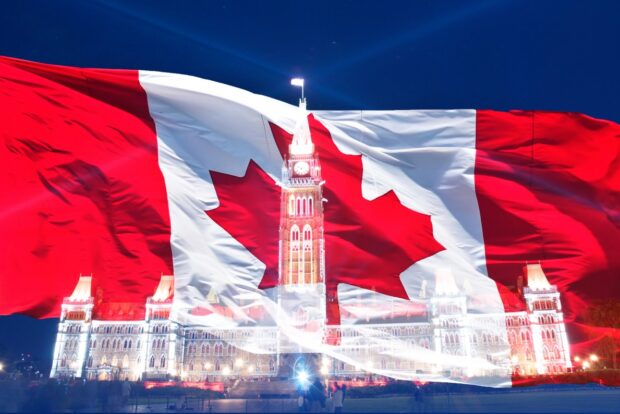Canadian public servants report feeling unable to give ‘fearless advice’ to leaders

Politicised decision-making is denting Canadian public servants’ confidence about giving frank and neutral advice to leaders, while declining trust in government is affecting its ability to overcome important challenges, a new survey has found.
The survey – part of a two-part study entitled ‘Top of Mind: Answering the Call, Adapting to Change’ – was conducted by the Institute on Governance and the Brian Mulroney Institute of Government in response to what they called “a plethora of negative forces… sowing the seeds of social polarisation and eroding trust in democratically elected governments”.
The survey sought views from a select pool of public officials responsible for managing organisations across federal, municipal, provincial, and territorial governments in Canada, to understand how these trends had affected their roles.
Around two thirds of participants acknowledged that the relationship between elected officials and public servants posed a significant challenge and needed more effective management. The independence of the public service featured as a key concern, with participants saying they felt less able to provide “‘fearless advice” to political leaders amid increasing politicisation.
“Public officials find themselves on the front line responding to an ever-changing operational environment that is becoming enormously complex, divisive, and increasingly difficult to navigate,” the survey report said.
Too much politics, too little trust
Participants reported a lack of “safe spaces” in which senior public executives could provide analysis and unpopular options to government.
One respondent commented: “We are in an era in which decision-making is so overly politicised that the role of the professional public servant has become diminished from what it should be.”
Another gave an account of observing parliament in which they noted “the blurring of the roles” between ministers and public servants. “I think if you do not solve it, then it calls the question on the neutrality of the public service,” they said.
Recalling challenges surrounding the Canadian government’s vaccine strategy, one participant remarked on how quickly their tasks became politicised. “Ultimately, it became a dogfight to get in a room and argue for allocations,” they said. “I think we have gone over the scale, and politics is what is leading us to this lack of confidence and trust in institutions.”
Read more: Public trust is essential to service delivery – and restores the public sector
Of the survey respondents, 81% said they believed “declining trust weakens their governments’ ability to implement good public policies and programmes and/or to deal with important challenges”. An overwhelming majority of executives (94%), meanwhile, said they felt both that media misinformation and polarisation are increasing and that these trends serve to “inhibit democracy and trust in governments”.
The survey also highlighted the challenges governments faced when communicating policies and engaging citizens throughout the COVID-19 pandemic. Drawing on survey responses, the report recommended different approaches to gathering and disseminating information that could restore public trust. Key suggestions included “promoting citizens’ knowledge of key issues and government processes”, “setting realistic expectations at the start”, and “responding to misinformation through science and objective evidence”.
“While the pervasiveness of both social media and misinformation use remains a relatively recent phenomenon, the anecdotes, according to participants, may actually be found in reinterpreting or applying traditional concepts of good governance in more contemporary or digital savvy ways,” the report said.
Ending the blame game
Respondents emphasised the need to increase collaboration across Canadian governments. The report said that “both within and between public sector jurisdictions”, intergovernmental collaboration was considered by those interviewed to be “one of the most significant challenges in modern public sector governance”.
One participant commented that “in Canada… we have fallen into coordination issues: municipal vs federal vs provincial. There is a perception put out there where a lot of Canadians are fighting and blaming one another”. However, the survey said that the pandemic had made the issue of intergovernmental cooperation “something to retain and build upon” by raising important questions around the share of responsibilities between provincial and federal governments.
“We must have a whole-of-government approach. I do not only mean on the provincial level, we need to get better at reaching other jurisdictions,” one of the respondents said.
“Complex problems cross jurisdictional boundaries, and there is not always tidy alignment with our constitutional design and divisions of powers… Citizens are increasingly challenged to understand
who is responsible for what,” the report said.
Read more: Are the truckers’ COVID-19 protests Canada’s winter of discontent?
Like this story? Sign up to Global Government Forum’s email news notifications to receive the latest news and interviews in your inbox.






















